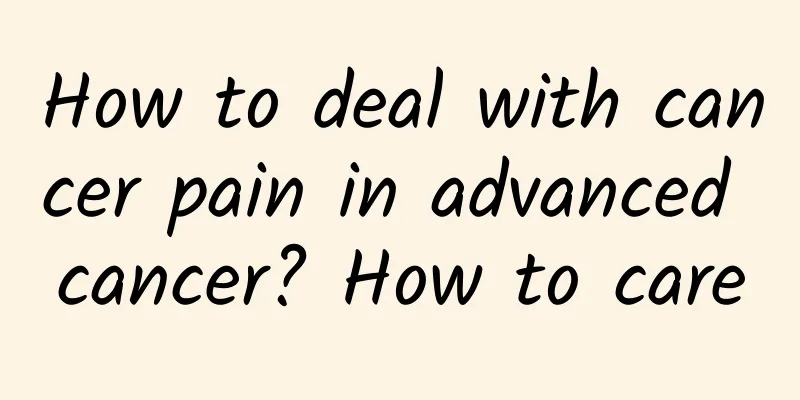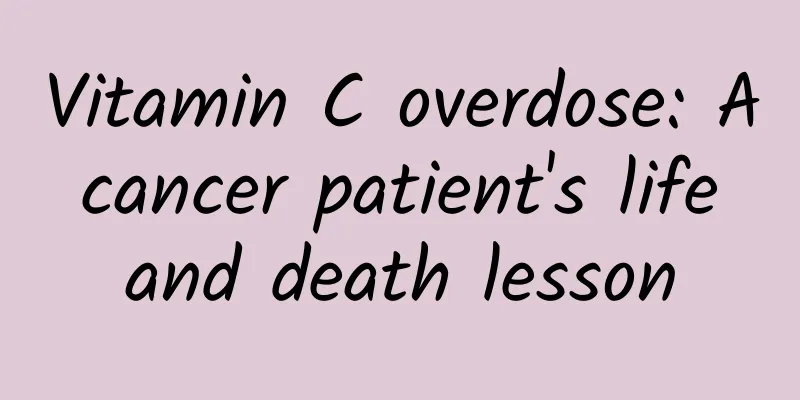How to deal with cancer pain in advanced cancer? How to care

|
With the growth and aging of the population, the incidence of cancer is also increasing, becoming one of the leading causes of death worldwide. Most cancer patients are already in the advanced stage, that is, terminal cancer, when they are diagnosed. Traditional treatments such as surgery, radiotherapy, chemotherapy, and interventional therapies for patients with advanced cancer are not effective, causing many patients with advanced cancer to spend the last journey of their lives in pain. Patients often need to endure the torture of cancer pain, which not only affects their quality of life, but also brings great psychological pressure to them. Therefore, it is very important to master the pain management and care methods for patients with advanced cancer. Next, we will take a deeper look at the management and care measures for cancer pain in advanced cancer. What is Advanced Cancer Advanced cancer is a stage of cancer, which refers to the spread of malignant tumors and metastasis to distant lymph nodes and organs. The more common sites of metastasis are the lungs, liver, bones and brain. Due to the excessive tumor burden, it is often difficult to completely eliminate cancer cells and achieve cure through surgery or single radiotherapy, chemotherapy and other methods. At the same time, as a family event, the diagnosis and treatment of cancer will bring great impact and challenges to the entire family. It not only changes the patient's own life, but also has a profound impact on the entire family, including family members' role changes, economic and social conditions and other aspects. What to do with cancer pain in late stage cancer? How to take care of it? Accurately assessing the patient's pain level is the basis for effective pain control, and drug therapy is the main method for dealing with pain in advanced cancer. According to the degree and cause of pain, the doctor will prescribe appropriate medications, such as over-the-counter drugs, prescription drugs, etc. In order to effectively control pain, following the doctor's orders to use painkillers and not adjusting the dose or changing the medication on your own is the key to relieving cancer pain. In addition to drug therapy, physical therapy, massage, acupuncture and other methods can also be used in combination to provide more comprehensive pain management. Advanced cancer patients will not only experience cancer pain symptoms that affect their quality of life, but will also affect their emotional state, produce negative emotions such as pessimism, and be detrimental to disease treatment. Therefore, psychological attention is particularly important. Nurses should pay close attention to the emotional state of patients, listen to their feelings and thoughts, and establish trust and open communication. Establish a good communication relationship with patients and their families, explain to them in detail the relevant knowledge of the disease, including the causes, treatment methods and precautions of cancer pain, guide them to use painkillers correctly, and closely observe adverse reactions. Strengthen psychological counseling, improve patients' awareness and understanding of pain, ensure that they fully understand their condition, help them establish correct expectations, and give them enough support and encouragement. For patients who need more in-depth psychological support, they can seek the help of professional psychotherapists to help them relieve psychological pressure and improve their coping ability by providing emotional support, coping skills guidance, relaxation training, etc., so that they can get full physical and mental care and peace. In the 1970s, some scholars proposed the concept of "family-centered" nursing, which emphasizes the core role of the family in caring for patients. The family is the basic unit of society. Family members can provide necessary care and help to meet the daily needs of patients. They can also provide emotional support and comfort to patients, enhance their confidence and strength, and help them better cope with the challenges brought by the disease. In order to provide comprehensive and continuous care, the two environments of home and hospital can be combined to build a family-medical and nursing integrated intervention model to ensure that patients can receive consistent support and care at different stages. Family members participate in the pain management of patients, learn and apply the pain management skills taught by the hospital. The hospital can grasp the changes in the condition in real time during communication, obtain timely information feedback, and provide patients with necessary adjustments and treatment suggestions. The hospital and the family work together to seamlessly connect and ensure the continuity of pain management. (Liu Yishu, Department of Internal Medicine and Field Medicine, the Third Affiliated Hospital of Naval Medical University, 200438) |
<<: Tumor Rumors | Does elevated tumor markers mean cancer?
>>: A photo of your fundus can tell you your health status in advance
Recommend
Which part can be massaged to enlarge breasts?
Every woman longs to have a very plump breast. In...
What should I do if my husband beats me?
With the development of society, everyone knows t...
How long can I be pregnant with a pregnancy test stick?
In life, many friends will use pregnancy test sti...
Is it painful to insert the IUD or to remove it?
Our country implements the basic national policy ...
Causes of acne on women's waist
Women have almost zero tolerance for acne. Becaus...
How to distinguish delayed menstruation from pregnancy
Girls have their menstrual period every month. Wo...
How should girls exercise?
Although men and women are born equal, their body...
What are the benefits of ovarian care?
The ovary is an organ that people attach great im...
Dietary conditioning for adenomyosis, you must eat right in the future
Female friends, please take note. If you unfortun...
What to do if inflammation occurs after breast augmentation surgery?
Women nowadays love beauty very much, and there a...
7 kinds of "toxins" cause women to age
The existence of human toxins that make women mor...
【Tang Medical Science】Precautions for Ultrasound Examination
The main purpose of physical examination is to en...
Tuberculous salpingitis
Tuberculous salpingitis often occurs in females d...
It’s the influenza season now. How can we prevent and respond to it scientifically?
It is currently the flu season. What are the symp...









